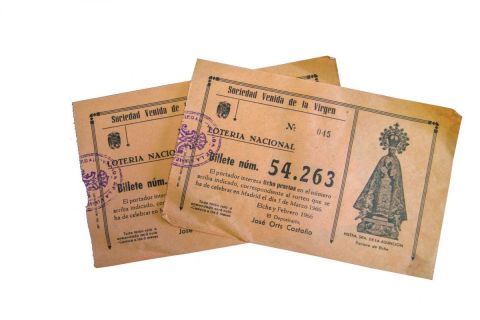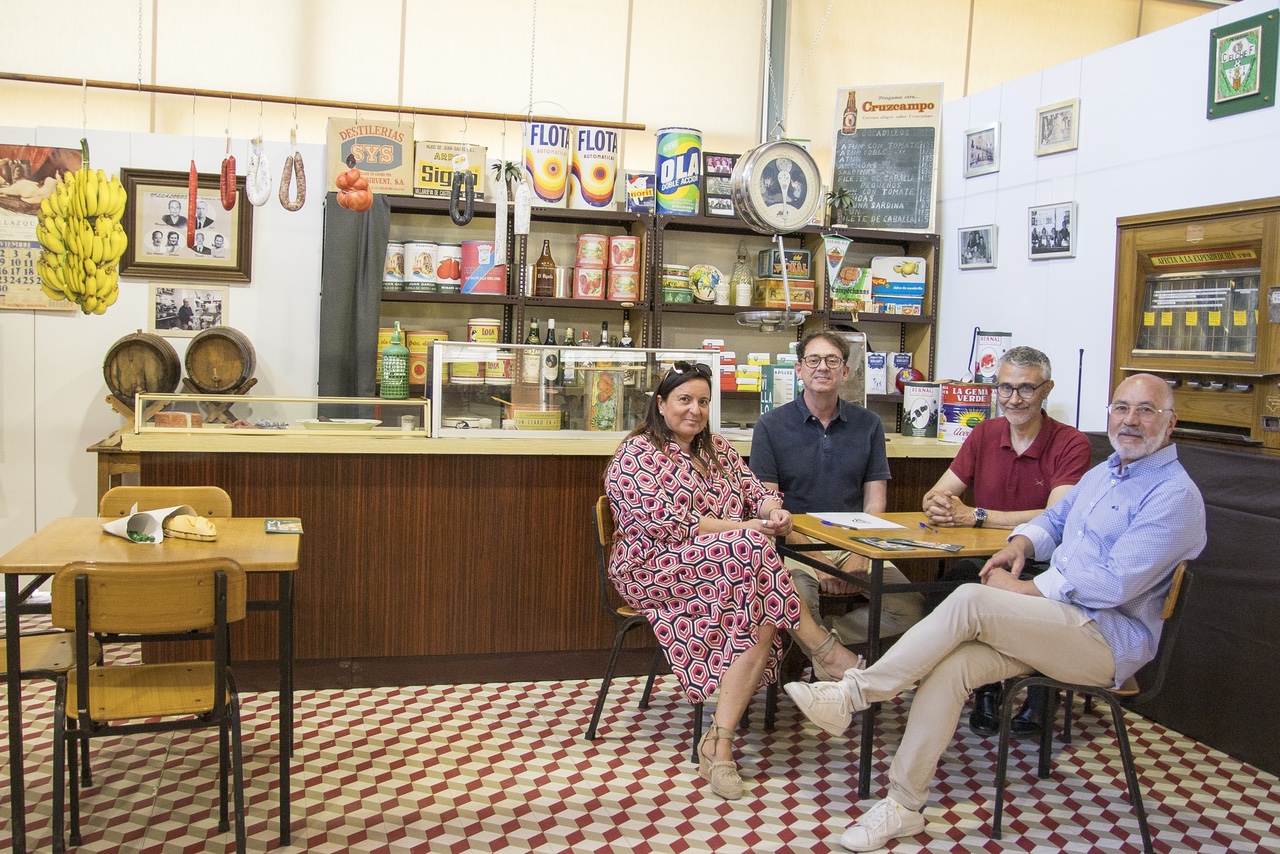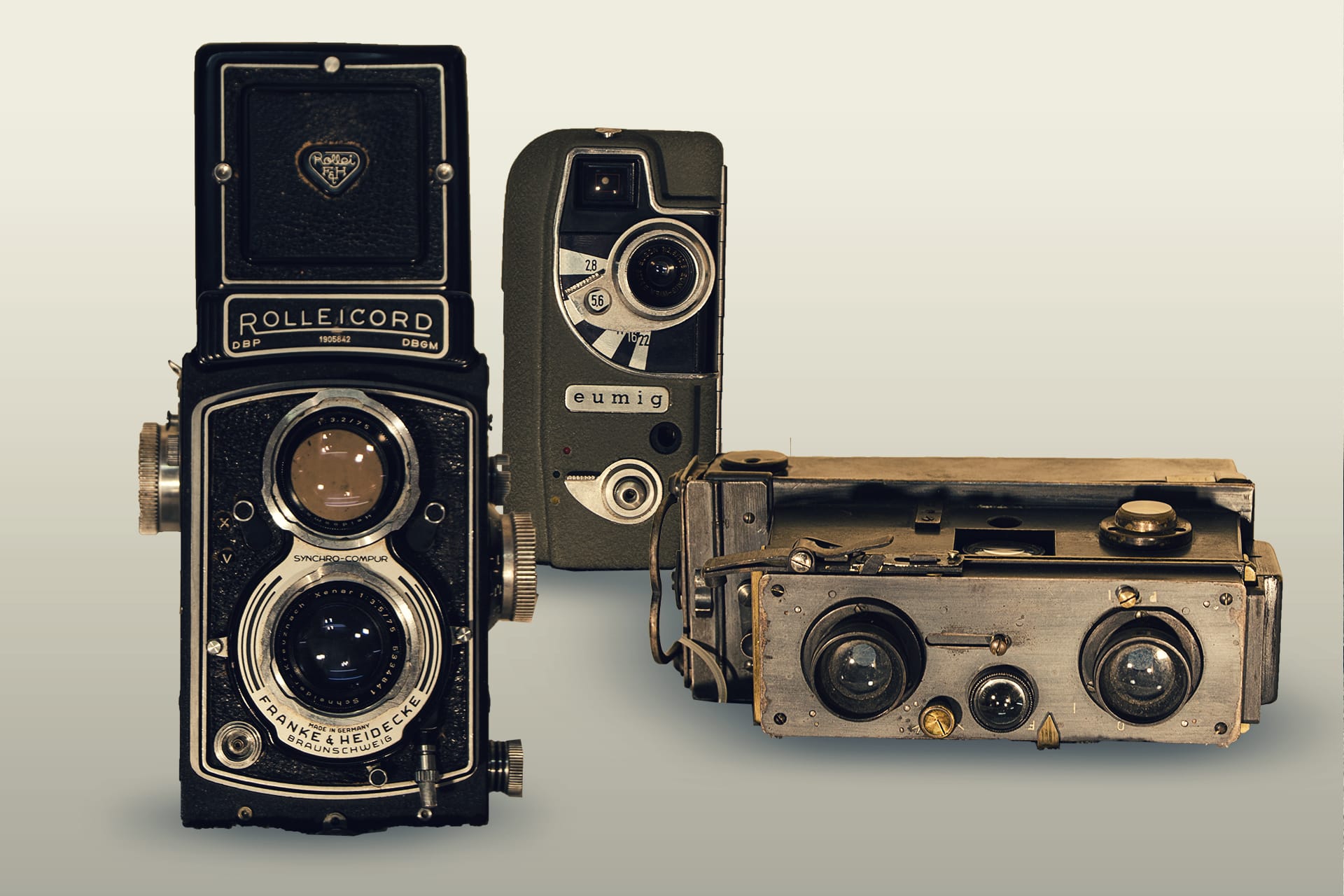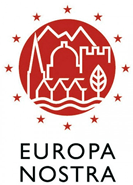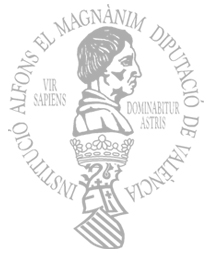
Small history of the National Lottery in Elche
22-11-2020
In the era of the homogenization of the world due to the intensive globalization that we live today, the search for the "other" becomes increasingly difficult. Now we find, in all parts of the world, the same norms and values, the same meals, the same brands, etc. As a French student trainee here at the Pusol School Museum, I wondered what elements form the cultural identity of a country, of a city, given that what struck me the most when I arrived here was the number of street vendors selling lottery tickets. We can find them in every corner of the streets, in the tobacconists, etc. The national lottery is a real institution here in Elche, as in other parts of Spain and, in fact, is part of the Spanish cultural heritage. Unlike other European countries, the national lottery is a source of complete enthusiasm.
The first Primitive Lottery came to Spain during the reign of Charles III. It was called the "Primitive Lottery", like today, but this lottery did not distribute its prizes in proportion to the money raised, but the prices were fixed. Besides, there were no limits on betting, so the state didn’t always win. This lottery was banned in 1862, because it practically ruined the state. That year, a few players wagered a lot of money on a few numbers and the state had to pay these players almost what it got the year before with the issuance of public debt[1]. The national lottery we know now was born in Cadiz in 1812, during the War of Independence. It is called "national" because it was a patriotic lottery. This money allowed the Spanish government to take up arms against Napoleon. It was the absolutists who gave it the name "Modern Lottery".
Today, the National Lottery has changed a lot, although those traditions are preserved, such as the songs of the children of San Ildefonso, which last since 1771. In the 1960s, this lottery acquired transnational dimensions, but it remained deeply rooted locally, because the Spaniards still maintain the habit of playing in clubs or in company, as it was said at that time, share a bet or buy a ticket together. Every neighbourhood association, sports club, company or family purchases lottery tickets and then sells them so that everyone can play. [2] This strong social establishment is a pretext for promoting the region. From this time on, elements of local culture are placed on banknotes, which become cultural vehicles for the dissemination of this culture at the national and international level. Thus, I could find in the museum’s collections, notes from the sixties printed here in Elche. We can see photographs of Elche of the time, of the Palmeral and of the Misteri, of course. These lottery tickets paid tribute to the cultural heritage of Elche and allowed it to be known beyond the city. Here, the vitality of traditions makes it possible to preserve a deep-rooted local cultural identity.
Good luck to the ilicitanos and ilicitanas for this year, I hope the rediscovery of these old bills will give you good luck!
Author: DjamilatouDiallo, trainee at Proyecto Pusol. Université Versailles Saint-Quentin in Yvelines, France.
Bibliography
"Breve historia de la Lotería Nacional",at Sociedad civil Navarra. Published in December 2016 [online]. Retrieved 4 November 2020. https://sociedcivilnavarra.com/breve-historia-loteria-national/? print=pdf
De Compostela, Santiago. "The History of the Christmas Lottery: the covert collection that was created in Spain to drive out the "tyrant" of Napoleon", in ABC. Published on 29 March 2017 [online]. Retrieved 4 November 2020. www.abc.es/loteria-de-navidad/historia.html
García, Roberto. The lotteries. A study from the economic sociology. Next Center for Sociological Research, 2007.
García, Roberto. "El mercado de loterías en España en perspectiva histórica", en Índice, 2006. [en línea]. Retrieved 4 November 2020. www.revistaindice.com/numero19/p14.pdf
[1]García, Roberto. "The lottery market in Spain in a historical perspective", in Índice, 2006 p.1.
[2]"Brief history of the National Lottery", at Sociedad civil Navarra, December 2016, p.2.
